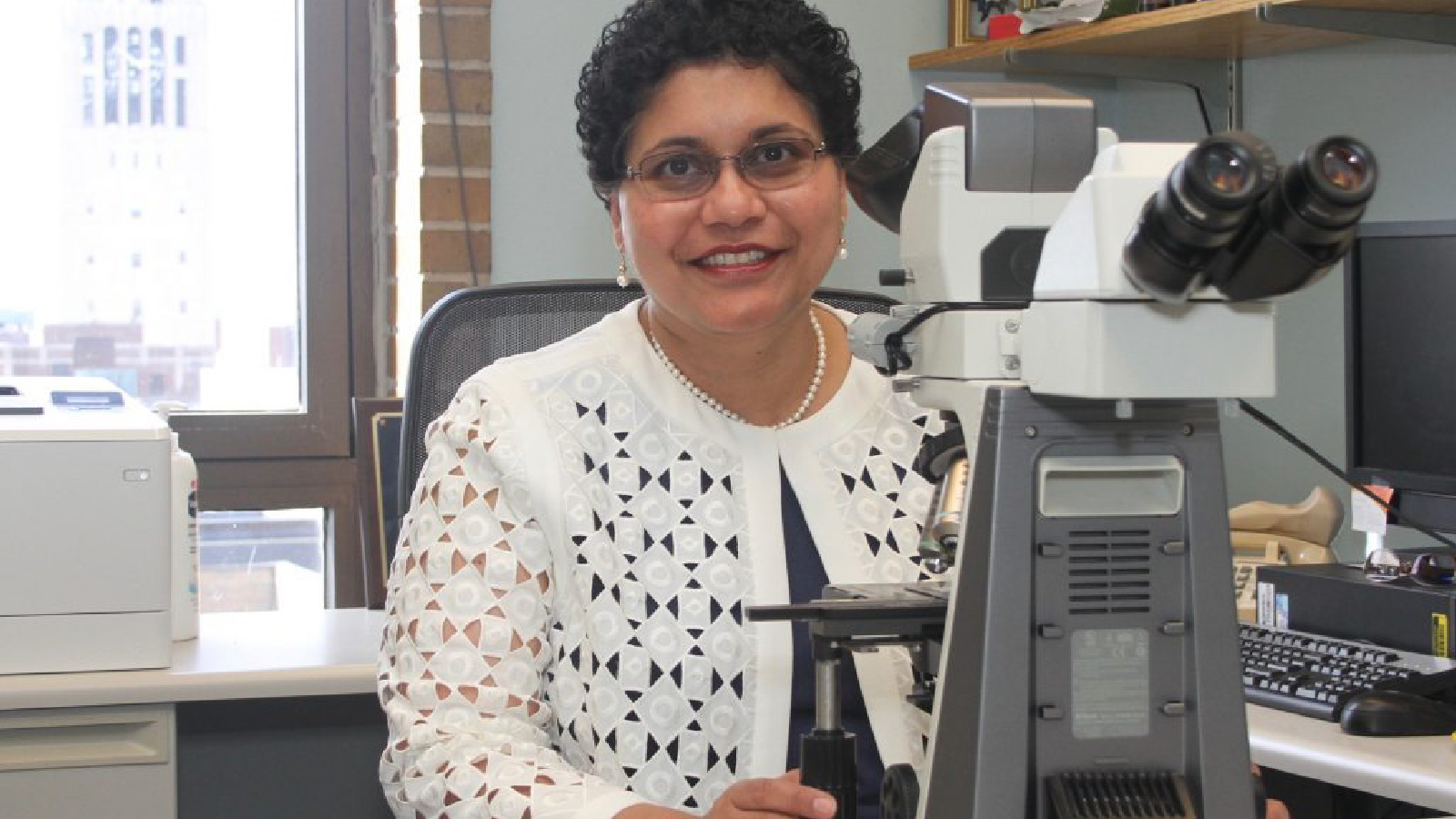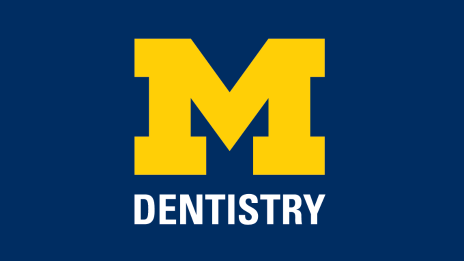By Anissa Gabbara | Photos by School of Dentistry
Oral cancer cases are surging.
The American Cancer Society estimates that about 58,450 new cases will be diagnosed in the U.S. this year, and about 12,230 of those cases will be fatal.
Oral cancer should be easy to discover—the oral cavity is highly visible—so these statistics are alarming.
“It's not like it's an internal organ, where it's sometimes harder to detect. But despite being so visible in the body, this is a cancer that will kill almost half the people who develop it if not detected early on,” said Nisha D’Silva, Donald A. Kerr Endowed Collegiate Professor of Oral Pathology, professor of pathology at the Medical School, and professor of dentistry at the School of Dentistry. She’s leading groundbreaking research that could transform patient outcomes.
Stopping the spread
Published in 2022 in Clinical Cancer Research, D’Silva’s oral cancer research explores perineural invasion (when tumor cells invade the nerves), which she said plays a critical role in the development, spread, and treatment resistance of cancer, and is associated with poor survival rates.
On a mission to better understand nerve-cancer interactions, D’Silva found that the distance between nerves and tumor cells could be a significant factor when it comes to diagnosis and treatment selection—ultimately improving patient outcomes. And with aggressive treatment early on, oncologists can better address perineural invasion and how soon it occurs.
“As of now, the cancer and nerve have to be touching in order to be considered a perineural invasion,” D’Silva explained. “But according to our findings, even when cancers and nerves are slightly apart they influence each other, so the hope is that the definition can be broadened and more patients get the treatment they need for the type of tumor they have.”
D’Silva likens perineural invasion to the epicenter of an earthquake.
“There is dramatic damage at the epicenter, but there are waves of damage outward from that,” she said. “So do we consider the disaster area just at the epicenter, or do we include some of the surrounding communities?”
Moving the needle, together
It takes expertise from several disciplines to produce cutting-edge treatments to a disease as insidious as oral cancer. Working closely with fellow researchers at U‑M’s various schools and units, including the School of Dentistry, the Medical School, and the School of Public Health, D’Silva sees cross-disciplinary collaboration as an opportunity to make a meaningful difference.
“The collaboration, the collegiality, and the very strong support from the Rogel Cancer Center uniquely positions U‑M to lead in oral cancer research,” she said.
D’Silva also credits the role philanthropy plays in advancing cancer research at the university. In 2022, D’Silva was named a Rogel Scholar by the Rogel Cancer Center—an honor that includes a three-year donor-funded award to help further the achievement of her research goals.
“When you're starting out in a certain area of research—even for established researchers—you need to have enough pilot data, which is hard to get,” she explained. “This funding has allowed me to do some critical pilot research in an area of oral cancer that has enabled my collaborators and me to apply for a large, competitive grant from the National Institutes of Health. So I think donor support is pivotal in allowing this research to get off the ground.”
Hopeful for the future
While there is more work to be done, D’Silva is optimistic about the impact her research findings could have on patient survival and she is ready to explore more ways to improve overall health outcomes. For instance, she said having access to tools that can help researchers distinguish between patients who need an aggressive approach and those who may benefit from less treatment might increase overall survival rates.
Additionally, she stressed the importance of annual oral cancer screenings, pointing to the School of Dentistry’s breadth of excellence in providing this area of care to patients.
“We train students at our school so they are well-equipped to be at the forefront of screening for oral cancer and other diseases,” D’Silva said. “It is my great hope that screenings, paired with highly successful treatment, will improve the quality of life and survival of patients with oral cancer.”








